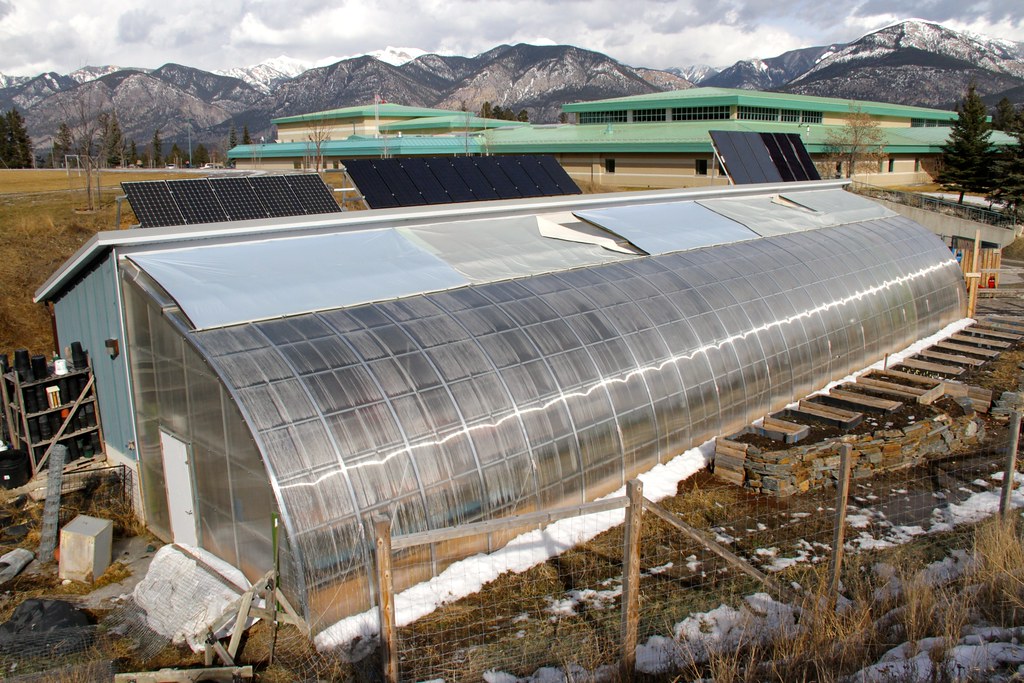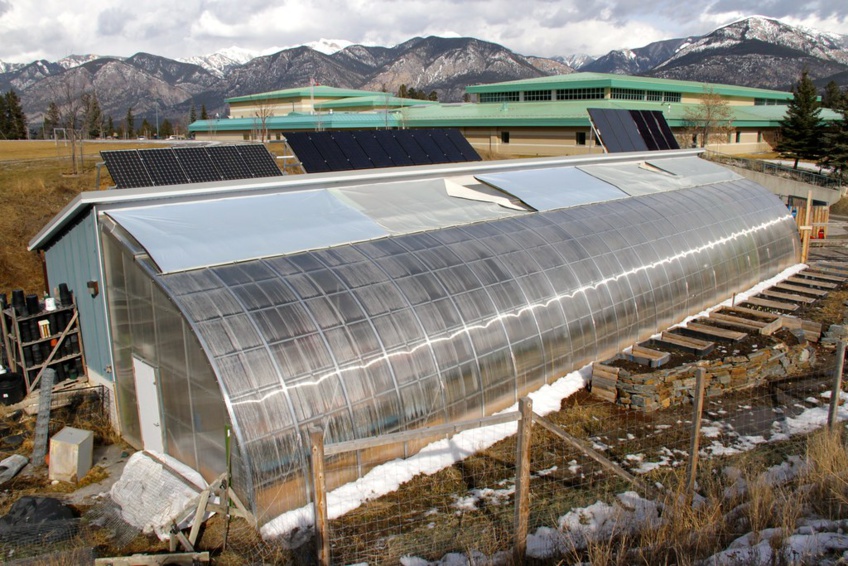Energy-efficient upgrades play a crucial role in combating climate change in Georgia. Why? Well, buildings in the state heavily rely on electricity and natural gas for various purposes such as heating, cooling, lighting, and powering appliances. These activities contribute significantly to greenhouse gas emissions, accounting for up to 30% globally. Retrofitting existing buildings to enhance their efficiency presents a significant opportunity to advance our climate goals.
Moreover, these upgrades offer benefits beyond just reducing carbon emissions. They can lead to lower energy bills, decreased pollution, and positive impacts on the natural environment.
One notable initiative, Groundswell, is actively addressing this issue with a focus on equity. Many low- and moderate-income households in Georgia inhabit older homes lacking proper insulation and energy-efficient appliances, resulting in disproportionately high energy costs relative to their income. Groundswell, a nonprofit organization operating across multiple states, is dedicated to providing energy efficiency upgrades to these communities, alongside investing in clean energy projects. Recognizing their efforts, Groundswell has been awarded a 2024-2025 Drawdown Georgia Climate Solutions & Equity Grant to expand their impactful work.
Please share with us the initiatives Groundswell undertakes in the realm of clean energy.
Groundswell is dedicated to empowering communities through clean energy initiatives aimed at alleviating the energy burden faced by low- and moderate-income households. To date, we have facilitated over $6.8 million in clean energy savings through various programs including community solar, resilience centers, and home energy efficiency projects. Our vision revolves around fostering equitable clean energy futures that foster wealth, employment opportunities, and savings for local communities.
Why is the retrofitting of homes such a crucial endeavor in the communities you serve, and what needs does it address?
In both Georgia and nationwide, households with the lowest incomes often bear the highest energy burdens, defined as the proportionally high energy costs relative to income. This disparity is particularly pronounced in rural areas, where low-income households frequently experience energy burdens exceeding 20 or even 30 percent. The primary culprit behind this phenomenon is outdated, inefficient housing. In regions like West Georgia, where Groundswell operates, it's common to encounter homes dating back to the 1940s and 1950s lacking insulation, equipped with outdated appliances, and grappling with utility bills surpassing $500 per month.
Such exorbitant energy burdens strain household finances, often forcing families into the agonizing dilemma of choosing between basic necessities like medicine and groceries or keeping their homes adequately powered. Groundswell is committed to devising innovative solutions to mitigate household energy burdens, thereby directly tackling the root causes of this untenable predicament. The positive outcomes extend beyond mere financial relief, as many beneficiaries report an enhanced quality of life resulting from reduced energy burdens.
How does your SOUL program contribute to scaling climate solutions in Georgia?
Groundswell's SOUL™ (Save On Utilities Long term) program leverages energy efficiency as a strategic investment in housing equity, simultaneously curbing utility bills and carbon emissions. Adopting a "Pay As You Save (PAYS®)" model, the program finances efficiency upgrades through the resulting energy savings. SOUL develops tailored plans for individual households, prioritizing upgrades and retrofits that yield the most significant impact, with scalability to benefit communities nationwide.
Please share the accomplishments of the SOUL program within the communities where it operates, as well as the insights gained from this experience.
The inaugural phase of the SOUL program commenced in LaGrange, Georgia, in 2020, where 45 homes underwent energy efficiency retrofits. Participants in this pilot initiative experienced annual energy bill savings of up to $500, with cumulative lifetime savings reaching $9,879. Notably, many individuals involved in the SOUL pilot expressed newfound comfort in their homes, attributing it to the weatherization enhancements facilitated by the program.
Throughout the on-the-ground implementation of SOUL, valuable lessons emerged regarding the prevalent repair and maintenance needs observed in homes necessitating energy efficiency upgrades. Surprisingly, over 50% of the assessed homes required various repairs such as roof maintenance, mold remediation, plumbing fixes, and flooring replacements to proceed with basic weatherization efforts. In numerous instances, these housing challenges traced back to historical injustices like segregation and discriminatory policies such as redlining, which deprived communities of essential resources and financial support. Addressing this funding gap became a key focus for the SOUL program.
Upon securing funding from the USDA Housing Preservation Grant, the program expanded its scope to encompass critical home repairs, thereby enhancing its capacity to offer complementary energy efficiency upgrades. With this funding, 28 families received over $500,000 worth of essential home repairs, rectifying health and safety hazards such as unstable flooring and non-functional bathrooms. These interventions not only paved the way for energy efficiency improvements but also fostered generational wealth accumulation by enabling the transfer of homes to future generations.
Congratulations on being awarded the 2024-2025 Climate Solutions & Equity Grant. How will this grant facilitate the expansion of your programs?
The Climate Solutions & Equity Grant serves as a catalyst for extending the reach of the SOUL program to additional communities across Georgia, particularly targeting small towns and rural counties grappling with high energy burdens and aging housing stock. This grant empowers our team to effectively deploy SOUL in areas where its impact can be maximized, offering tangible benefits to families in need of assistance.
Our experience with the SOUL initiative in West Georgia has provided invaluable insights into leveraging various funding sources—from federal, state, local, and philanthropic entities—to address the needs of local families. By utilizing energy efficiency as a means to invest in housing equity, we've learned the importance of adeptly navigating program funding and financing landscapes. Indeed, our proficiency in securing financial support is as vital as our technical expertise in delivering energy efficiency upgrades and home repairs in accomplishing our mission effectively.
Moreover, these upgrades offer benefits beyond just reducing carbon emissions. They can lead to lower energy bills, decreased pollution, and positive impacts on the natural environment.
One notable initiative, Groundswell, is actively addressing this issue with a focus on equity. Many low- and moderate-income households in Georgia inhabit older homes lacking proper insulation and energy-efficient appliances, resulting in disproportionately high energy costs relative to their income. Groundswell, a nonprofit organization operating across multiple states, is dedicated to providing energy efficiency upgrades to these communities, alongside investing in clean energy projects. Recognizing their efforts, Groundswell has been awarded a 2024-2025 Drawdown Georgia Climate Solutions & Equity Grant to expand their impactful work.
Please share with us the initiatives Groundswell undertakes in the realm of clean energy.
Groundswell is dedicated to empowering communities through clean energy initiatives aimed at alleviating the energy burden faced by low- and moderate-income households. To date, we have facilitated over $6.8 million in clean energy savings through various programs including community solar, resilience centers, and home energy efficiency projects. Our vision revolves around fostering equitable clean energy futures that foster wealth, employment opportunities, and savings for local communities.
Why is the retrofitting of homes such a crucial endeavor in the communities you serve, and what needs does it address?
In both Georgia and nationwide, households with the lowest incomes often bear the highest energy burdens, defined as the proportionally high energy costs relative to income. This disparity is particularly pronounced in rural areas, where low-income households frequently experience energy burdens exceeding 20 or even 30 percent. The primary culprit behind this phenomenon is outdated, inefficient housing. In regions like West Georgia, where Groundswell operates, it's common to encounter homes dating back to the 1940s and 1950s lacking insulation, equipped with outdated appliances, and grappling with utility bills surpassing $500 per month.
Such exorbitant energy burdens strain household finances, often forcing families into the agonizing dilemma of choosing between basic necessities like medicine and groceries or keeping their homes adequately powered. Groundswell is committed to devising innovative solutions to mitigate household energy burdens, thereby directly tackling the root causes of this untenable predicament. The positive outcomes extend beyond mere financial relief, as many beneficiaries report an enhanced quality of life resulting from reduced energy burdens.
How does your SOUL program contribute to scaling climate solutions in Georgia?
Groundswell's SOUL™ (Save On Utilities Long term) program leverages energy efficiency as a strategic investment in housing equity, simultaneously curbing utility bills and carbon emissions. Adopting a "Pay As You Save (PAYS®)" model, the program finances efficiency upgrades through the resulting energy savings. SOUL develops tailored plans for individual households, prioritizing upgrades and retrofits that yield the most significant impact, with scalability to benefit communities nationwide.
Please share the accomplishments of the SOUL program within the communities where it operates, as well as the insights gained from this experience.
The inaugural phase of the SOUL program commenced in LaGrange, Georgia, in 2020, where 45 homes underwent energy efficiency retrofits. Participants in this pilot initiative experienced annual energy bill savings of up to $500, with cumulative lifetime savings reaching $9,879. Notably, many individuals involved in the SOUL pilot expressed newfound comfort in their homes, attributing it to the weatherization enhancements facilitated by the program.
Throughout the on-the-ground implementation of SOUL, valuable lessons emerged regarding the prevalent repair and maintenance needs observed in homes necessitating energy efficiency upgrades. Surprisingly, over 50% of the assessed homes required various repairs such as roof maintenance, mold remediation, plumbing fixes, and flooring replacements to proceed with basic weatherization efforts. In numerous instances, these housing challenges traced back to historical injustices like segregation and discriminatory policies such as redlining, which deprived communities of essential resources and financial support. Addressing this funding gap became a key focus for the SOUL program.
Upon securing funding from the USDA Housing Preservation Grant, the program expanded its scope to encompass critical home repairs, thereby enhancing its capacity to offer complementary energy efficiency upgrades. With this funding, 28 families received over $500,000 worth of essential home repairs, rectifying health and safety hazards such as unstable flooring and non-functional bathrooms. These interventions not only paved the way for energy efficiency improvements but also fostered generational wealth accumulation by enabling the transfer of homes to future generations.
Congratulations on being awarded the 2024-2025 Climate Solutions & Equity Grant. How will this grant facilitate the expansion of your programs?
The Climate Solutions & Equity Grant serves as a catalyst for extending the reach of the SOUL program to additional communities across Georgia, particularly targeting small towns and rural counties grappling with high energy burdens and aging housing stock. This grant empowers our team to effectively deploy SOUL in areas where its impact can be maximized, offering tangible benefits to families in need of assistance.
Our experience with the SOUL initiative in West Georgia has provided invaluable insights into leveraging various funding sources—from federal, state, local, and philanthropic entities—to address the needs of local families. By utilizing energy efficiency as a means to invest in housing equity, we've learned the importance of adeptly navigating program funding and financing landscapes. Indeed, our proficiency in securing financial support is as vital as our technical expertise in delivering energy efficiency upgrades and home repairs in accomplishing our mission effectively.


 Groundswell: Empowering Communities Through Energy Efficiency Programs
Groundswell: Empowering Communities Through Energy Efficiency Programs





 Companies
Companies